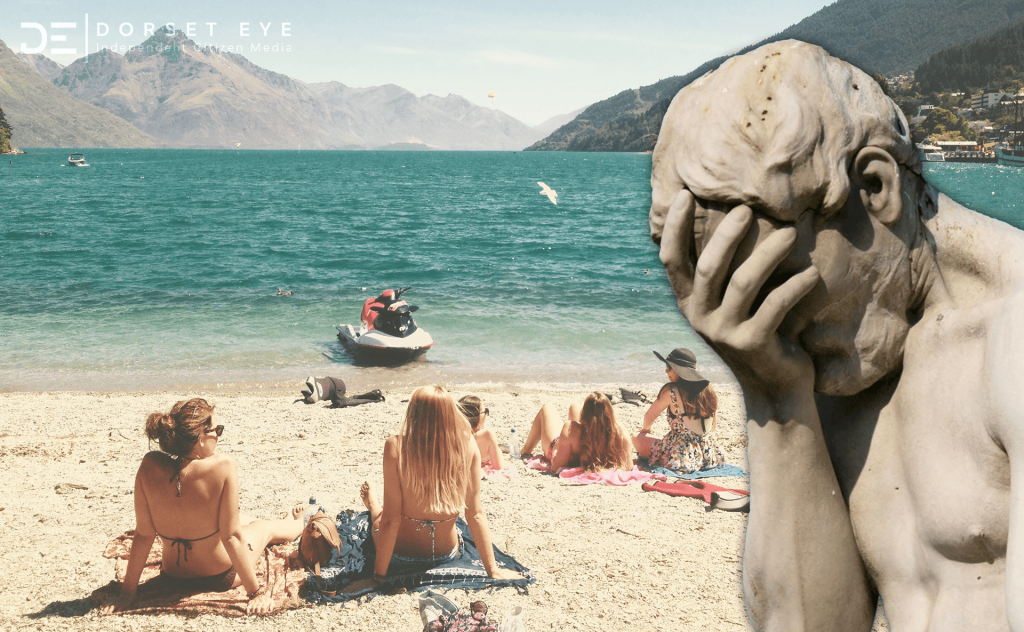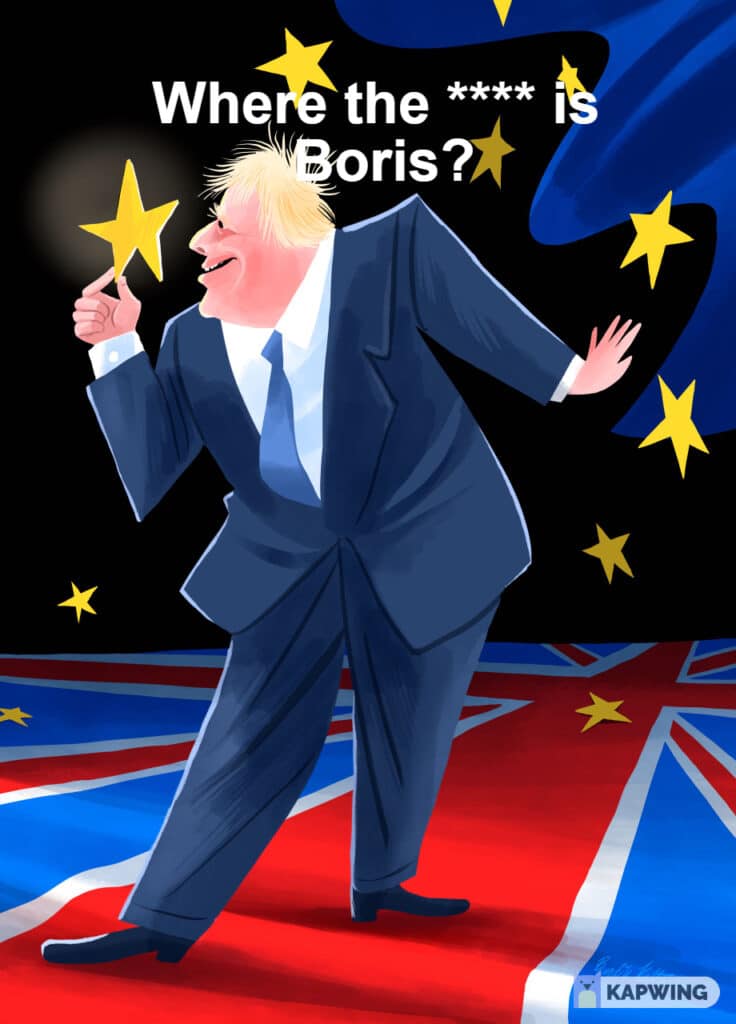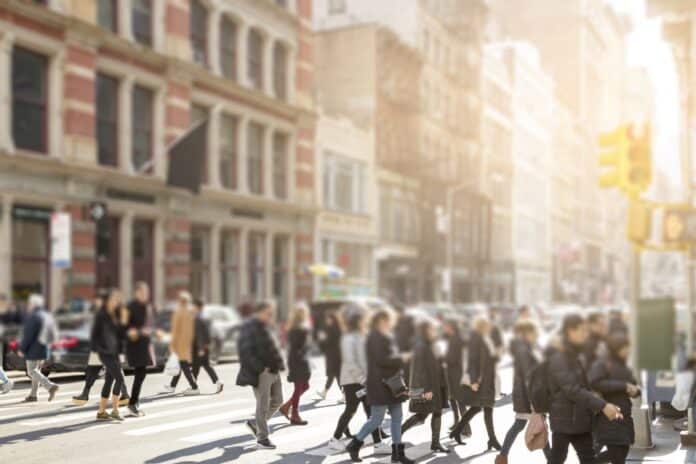The UK public have now been given the green light to ignore ALL government pronouncements. Whatever comes out of their mouths mean nothing. They say one thing and do another.
The last straw for many is this. The HEALTH SECRETARY allowing his penis to lead him when he was supposed to be setting an example. The latest data from YouGov suggests that the vast majority of the public have had enough.
He goes or we do what we like.
This incident is of course not the first but a littany of mistakes and deceptions.
Here are just some of the reasons the public want to go their own way and probably should:
1. Slamming ‘medically irrational’ shutdowns

On February 3, four days after the first confirmed cases in the UK, Boris Johnson made clear he didn’t want to shut down the economy.
In fact he said Britain would be “the supercharged champion of the right of the populations of the earth to buy and sell freely among each other” while others shut down.
The Prime Minister said: “There is a risk that new diseases such as coronavirus will trigger a panic and a desire for market segregation that go beyond what is medically rational to the point of doing real and unnecessary economic damage.
“Then, at that moment, humanity needs some government somewhere that is willing at least to make the case powerfully for freedom of exchange.”
2. Missing Cobra meetings and failing to prepare

An exercise codenamed ’Cygnus’ in 2016 found the UK’s preparedness was “not sufficient” for a major flu outbreak.
But instead of readying our Covid defences in January and February, the PM celebrated Brexit, spent time at Chequers and sorted his matrimonial arrangements.
By the end of January, the virus had spread from China to six countries and the World Health Organisation warned of a “public health emergency of international concern”.
Boris Johnson would miss five meetings of the Government’s Cobra emergency committee.
On February 18 his divorce was finalised, and on February 29, Mr Johnson and Carrie Symonds announced they were engaged and “hatching” a baby in “early summer”.
3. Shaking hands
Government advisors warned people should stop shaking hands to slow the spread of coronavirus – on the same day Boris Johnson boasted he’d been shaking hands with “everybody” at a hospital.
The Independent Scientific Pandemic Influenza Group on Behaviours (SPI-B), a subcommittee of the SAGE scientific advisory committee, issued its advice on March 3.
It said: “There was agreement that Government should advise against greetings such as shaking hands and hugging, given existing evidence about the importance of hand hygiene.
“Promoting a replacement greeting or encouraging others to politely decline a proffered hand-shake may have benefit.”
But on the same day, Boris Johnson told a No 10 press conference: “I was at a hospital the other night where I think a few there were actually coronavirus patients. And I shook hands with everybody, you’ll be pleased to know, and I continue to shake hands.
4. Mass testing
Widespread coronavirus testing was axed on March 12, as ministers decided to focus on testing people in hospitals and care homes.
It was only reintroduced months later once capacity was high enough – with care home residents not being routinely tested until mid-April.
Scientists have since said it would have been better to get widespread testing going sooner as infected people went untraced.
At the time community testing was dropped, Jenny Harries, Deputy Chief Medical Officer for England, claimed it was “not an appropriate mechanism as we go forward.”
But she, too, later accepted the nation would have taken a different path if more tests were available.
She added: “If we had unlimited capacity, and the ongoing support beyond that, then we perhaps would choose a slightly different approach.”
5. Locking down too late
Boris Johnson was accused of dithering over lockdown for a few crucial days in March while the virus spun out of control.
The Cheltenham Festival and Liverpool vs Atletico Madrid were allowed to go ahead early in the month while fears mounted.
And the Prime Minister announced people were to stop all unnecessary social contact on March 16 – before lockdown legally took effect a week later on March 23.
That meant pubs were allowed to stay open for almost a week despite the Prime Minister ordering citizens not to go to them.
SAGE advisor John Edmunds said “poor” data back in March made it hard to “pull the trigger.. but I wish we had, I wish we had gone into lockdown earlier. I think that has cost a lot of lives, unfortunately.”
6. Locking down too late – again
Mr Johnson overruled Government scientists in September who pressed for national lockdown measures such as stopping all household mixing and closing all pubs.
SAGE called for an immediate introduction of national interventions, saying failure to take such measures could result in “a very large epidemic with catastrophic consequences”.
Top of this list of five interventions was a two- to three-week circuit breaker lockdown.
Mr Johnson ignored those calls and a close ally told journalists Keir Starmer, who urged a circuit-break, “is a shameless opportunist playing political games in the middle of a global pandemic”.
He eventually called a second national lockdown in November, when cases had risen much higher.
7. Seeding the virus into care homes
Covid-19 ripped through care homes at the start of the pandemic, as elderly people proved extremely vulnerable to the virus.
Almost a third of coronavirus deaths to date have been in care homes. The elderly and infirm are of course more at risk from the virus.
But it emerged that many elderly people were discharged from hospitals into care homes in March to free up beds – without being tested. This decision has been blamed for helping the virus to spread.
Guidance to care homes in February said: “This guidance is intended for the current position in the UK where there is currently no transmission of Covid-19 in the community.
“It is therefore very unlikely that anyone receiving care in a care home or the community will become infected.”
The guidance said there was no need for staff to wear masks. It was only withdrawn on March 13.
Chief Medical Officer Chris Whitty has since admitted a major failing was not realising how far the virus could be spread asymptomatically.
8. Travel corridors chaos
The Government dragged its feet for months over measures to tighten up the UK’s borders – which Priti Patel claimed she’d privately pushed for in March.
Brits were allowed to go abroad and vice versa after the end of the first lockdown, then rising cases in countries like Spain led to sudden, chaotic introductions of quarantine restrictions.
Only last week did we ban flights from some nations and require arrivals to show a negative test.
The Government is finally considering making people quarantine in hotels this week, due to new variants of Covid. Other countries have had the policy for months.
9. PPE
Even at the end of February the Government believed it was in a good position – sending more than 600,000 items of PPE to China to help the Wuhan outbreak.
But in the early months of the pandemic in the UK, care and health staff complained they were running out of PPE and had to improvise including with bin bags.
Some items hastily ordered through lucrative private sector contracts turned out to be unusable or not to meet Government specifications.
They included gowns which were flown in from Turkey on an RAF flight in chaotic scenes and amid several delays.
10. Schools chaos
Schools are a special case. Ministers insist they are safe to the pupils who attend them, and they are vital for stopping other harms such as a lost generation of learning.
Even now there is no firm consensus on how much they might seed the virus in the wider community – which is the reason they can be a problem.
However, they have been embroiled in chaos and chopping and changing rules.
At first they had strict 15-pupil bubbles, but these then extended to whole year groups, essentially making them pointless as a containment strategy.
England’s primary schools then were allowed to return for one day in January 2021 before then being locked down again to all but vulnerable and key workers’ kids.
11. Test and Trace app
England’s contact-tracing app was designed as a vital tool to tell if you’ve been exposed to someone with Covid-19.
But it went from an NHS app that would be a “key part” of the system by mid-May – to an Apple- and Google-run software that would be the “cherry on top” by winter.
On April 28, the PM’s official spokesman said the app would be “a key part of the surveillance programme going forward”.
But the date began to slip to the end of May, then the “coming weeks” after that, and then winter – as the ditched app only picked up contacts with iPhones 4% of the time.
By the time Boris Johnson said this on May 20, the Government was already clear his pledge didn’t include the app: “We have growing confidence that we will have a test, track and trace operation that will be world-beating, and yes, it will be in place by 1 June.” The new app entered service in September.
12. Contact tracing failed to reach thousands
Despite the £22bn budget for testing and tracing put together, there have been a string of failures with ‘NHS’ Test and Trace.
The contact tracing service was mostly outsourced to Serco and Sitel at an initial cost of £720m.
But at one point they were reaching jut 60% of contacts of people with coronavirus and telling them to self-isolate.
Councils’ local health teams got more involved and had greater success, despite dealing with supposedly harder-to-reach cases.
By June 17, Test and Trace call handlers were being used just 1% of the time. Meanwhile, Government studies have suggested compliance with isolation is poor.
13. Masks
For months Boris Johnson – and his medical advisers – insisted there was little benefit of covering your face to slow the spread of coronavirus.
But three months after the first case reached the UK – Boris Johnson admitted: “I do think face coverings will be useful, both for epidemiological reasons, but also for giving people confidence that they can go back to work.”
Face coverings were later made mandatory by law on public transport, followed by shops and supermarkets, and other venues such as churches and cinemas.
Chief Medical Officer Chris Whitty admitted masks were one of the main lessons learned from the pandemic.
14. Dominic Cummings’ lockdown trip undermined trust
Mr Johnson refused to sack Dominic Cummings – even when evidence showed that his aide’s trip to Durham at the height of lockdown drastically undermined public trust in the Government’s handling of the pandemic.
Analysis by University College London found the actions of the PM’s chief adviser reduced people’s willingness to follow social distancing rules.
It revealed that adherence to lockdown, which was already starting to decline, dropped more rapidly in the weeks following the revelations. But despite that, he clung on for months.
15. Christmas and Eat Out to Help Out
The Prime Minister agreed a four-nation plan to allow people to socialise with two other households for five days over Christmas.
As cases surged in December – driven by a new variant of Covid – he continued to insist on keeping the rules.https://get-latest.convrse.media/?url=https%3A%2F%2Fwww.chroniclelive.co.uk%2Fnews%2Fuk-news%2Fboris-johnson-coronavirus-crisis-mistakes-19708170&cre=bottom&cip=109&view=web
Eventually they were (mostly) scrapped on December 19, 2020, when many people had already made Christmas plans and booked travel.
While there’s no conclusive data on how many people broke the rules and had Christmas anyway, the case rates tell their own story.
If the UK government want freedom for the individual let’s give it to them and cast them aside. We can do a better job than them at keeping us safe and honest. We cannot do any worse.
Douglas James
PLEASE SUPPORT US FOR JUST £2 A MONTH







